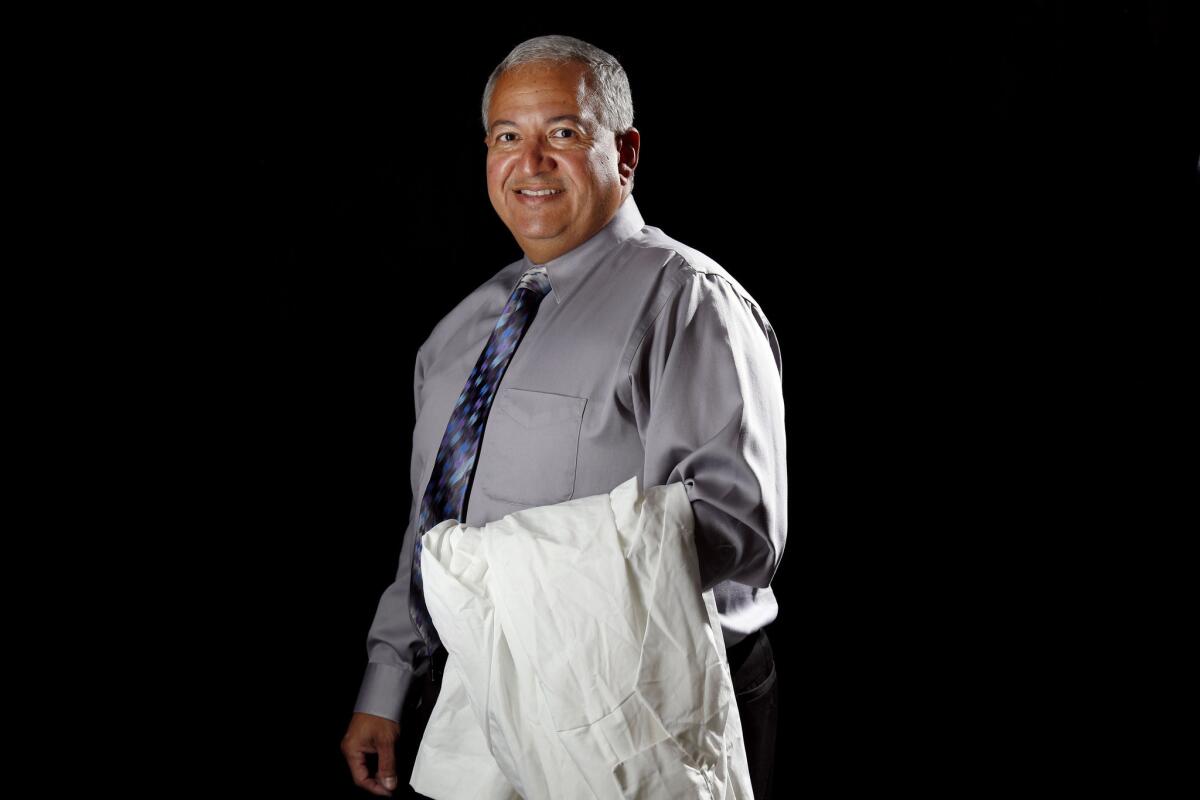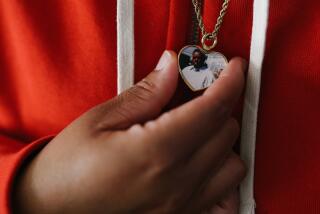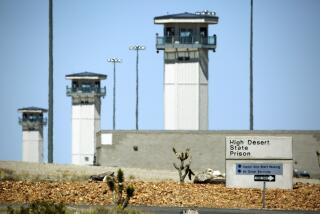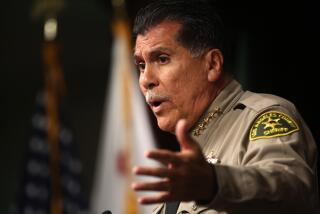L.A.’s new coroner to the people

Mark Fajardo’s first weeks in the very public job of Los Angeles County coroner coincided with the deaths of two TV actors — one from “That ‘70s Show” and another from “Rizzoli & Isles” — and the toxicology report from the car-crash death of journalist Michael Hastings. Even without such high-profile passings, the coroner’s office would be in the spotlight. It investigates more than 10,000 cases a year — homicides, unexplained deaths, traumatic deaths, suicides — and performs 5,500 autopsies. Since August, Fajardo has been the doctor responsible to L.A.’s living for L.A.’s dead.
Your job is invariably described as “coroner to the stars.” When Michael Jackson died, the coroner’s office resorted to helicopter transportation, the press crush was so great.
There’s a certain view of the coroner of Los Angeles. It’s not something I’m going to be able to distance myself from. Tom Noguchi [the original self-styled “coroner to the stars”] was Tom Noguchi, Dr. Lakshmanan [Sathyavagiswaran, Fajardo’s predecessor] was Dr. Lakshmanan, Dr. Mark Fajardo is going to be Dr. Mark Fajardo. We are in Los Angeles, and there are going to be stars who die in our county.
It’s a far cry from Riverside County, that’s for sure.
It’s the pinnacle of my profession. No question that this is the busiest office in the United States, busier than New York. We do more cases, we have a greater population density, and New York is divided into several boroughs. Here, it’s one facility for the whole county. Everything comes here.
The case of the killer ex-cop Christopher Dorner must have given you a bit of a taste of high-profile situations.
It was [handled] with great caution, from the autopsy itself, maintaining all the evidence, trying to keep control over what information was coming out. All those things together, that level of caution and trying to serve the people of the county, and that included the [Dorner] family, that’s what guides us. Serve the people of the county and everything else will fall into place.
With the omnipresence of social media we see leaks even from police departments. Do leaks concern you?
Absolutely. Like the Dorner case — there were allegations that photos were taken, obviously not while [the body was] in the possession of the Riverside County coroner’s office, but maybe at the mortuary, which is out of our hands. Nevertheless, it is a huge issue, and the degree of celebrity here makes it a much greater issue, so yes, attention has to be paid. But it is a monumental task, because everybody has a cellphone and they’re linked to Facebook and Twitter, and it’s out the door.
Your budget is about $32 million; that sounds like a lot.
I’ll be blunt. It is not. But the amount of services this office can produce on that budget is amazing. In Riverside County, our budget was $6-plus million. That served a population of about 1 million. Here we are over 10 million, so if you do the math, the budget should be 10 times the amount. It’s barely five times that amount. We are the premiere coroner’s office in the United States, especially in light of — I won’t mind reiterating — the budget we have. I think we serve the people of Los Angeles County very well.
How did you get this job?
I found out about it because the consulting group called me — it was very flattering. I was sitting at my desk in Riverside County and they’d given me a call and said, “We have this opening and we’d like you to consider applying for it.” I thought to myself, this is the only job I’d consider leaving Riverside County for.
Did you meet the Board of Supervisors one at a time?
One at a time! I think they were looking for, can we work with this individual? Is this someone we can rely on, converse with, set policy with.
How much of this job is pathology and how much is paperwork?
The reality is most of it is going to be administrative, and less actually performing autopsies; I will have to keep my skill set up.
This job is a kind of homecoming for you.
I was born and raised in East L.A., but when my father [a sheriff’s deputy who was killed in an auto accident] passed away when I was in seventh grade, we moved to Santa Maria. It’s changed dramatically [but] a lot of things look vaguely familiar. I can find the medical center!
How did you become a forensic pathologist?
Throughout school I was going to be a marine biologist. I loved the ocean; my dad took me fishing on a boat out of San Pedro. I went to UC Davis undergrad and discovered that trying to make a profession out of it was going to be very difficult. That required a change in the road.
I moved back to Santa Maria and started going to Cal Poly San Luis Obispo. The group of people I played basketball with, all hard science majors, were influencing me to go into health sciences. I became an EMT while I was going to school. I was getting recruited to be a biochemist but I decided to try medical school like my compadres. I got in with the intent of becoming an emergency room physician because I liked ER.
I got into UC Davis and loved it. Again, people I was playing basketball with at UC Davis were pathologists. So, pathology! We got to rotate through the coroner’s office and that finally led me into forensic pathology.
This has to be a difficult job emotionally. Are there cases that stay with you?
Of course. Ricky and Conrad Morales — two brothers who were killed by their aunt and uncle several years ago. One was encased in concrete. Cases like that will absolutely leave an indelible mark on your soul, but alternatively, it’s what I do — I speak for those two kids. I sought justice for them. Their aunt and uncle are now on death row because of the role that I played.
It takes a certain type of individual to work in the profession, it truly does. You have to be able to divorce the horrors that we see here from what we do when we go home. However we deal with those emotions, we have to be very, very good at it. For me, it’s the ability to put things in boxes. When I leave the office, I can maintain that box and keep it there.
Do you read mysteries and watch “CSI”?
I see [mysteries] every day. Every day is a puzzle for me. Every day I have to figure out something. So I don’t enjoy that type of literature. I do enjoy fantasy and science fiction — Tolkien, Arthur C. Clarke, Isaac Asimov, Ray Bradbury. Shows like “CSI,” while sometimes entertaining, can annoy me. “True Blood,” “Game of Thrones,” “Under the Dome” — I like that kind of show.
Did you watch TV’s most famous coroner, Quincy — starring Jack Klugman?
I did! I met Jack Klugman on two occasions. He lived in Riverside County, had a horse farm. I ran into him, but with a celebrity, you never want to impose.
Has the portrayal of crime-solving on TV changed juries’ expectations?
It helps me and it hinders me. It helps because when I’m on the stand, I’m able to say, “Now, as you have all seen on TV, an autopsy is....” But we have to explain why it takes longer than a one-hour show to have toxicology reports. And defense attorneys, even prosecutors will ask a question, and you have to answer, “This is not ‘CSI,’ this is reality.”
Twitter: @pattmlatimes
This interview was edited and excerpted from a taped transcript.
More to Read
A cure for the common opinion
Get thought-provoking perspectives with our weekly newsletter.
You may occasionally receive promotional content from the Los Angeles Times.







